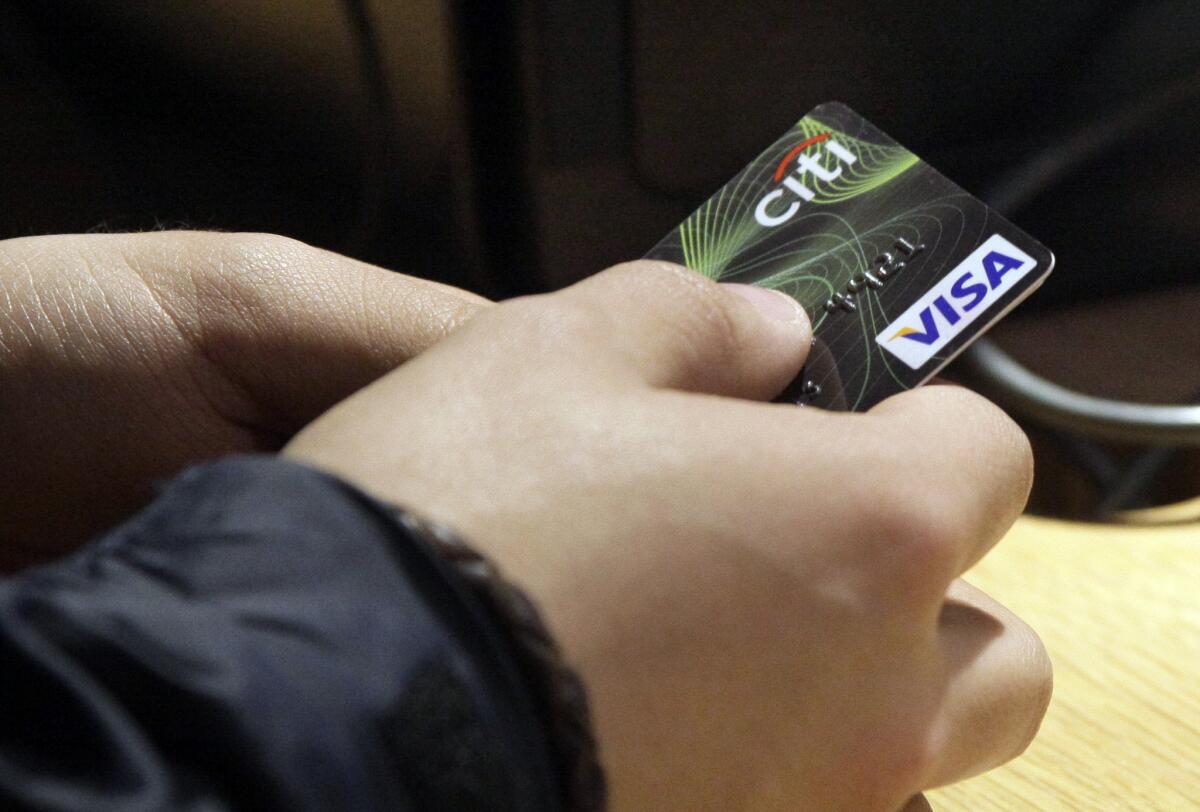Merchants lose bid to force lower debit card swipe fees

The U.S. Supreme Court declined to hear an appeal by retailers seeking to force the Federal Reserve to impose lower fees on the more than $1.4 trillion in debit card transactions processed by Visa and MasterCard and big banks.
The court’s denial, made without comment this morning, is a blow to big retailers, like Wal-Mart Stores Inc. and Target Corp., as well as smaller concerns, and a big win for the financial services industry.
The decision lets stand regulations laid down by the Federal Reserve under the 2010 Dodd-Frank financial reform law that capped so-called interchange fees at 21 cents per transaction, much higher than the Fed had originally proposed and what merchants had wanted.
Merchants groups, which had called the fees a tax on consumers, expressed disappointment with the ruling and said they would carry the fight back to Fed rule makers. Retailer groups have said merchants could ultimately pass on the cost to consumers in higher prices.
“It is unfortunate that the Supreme Court would not hear about the legal problems with the Federal Reserve’s debit swipe fee rules,” said Lyle Beckwith, a spokesman for the National Assn. of Convenience Stores, which had filed the suit. “Banks should not be allowed to use centrally price-fixed fees to make margins of 500 to 1,000% or more on debit swipe fees.”
Finance industry groups said the cap, known as the Durbin Amendment, imposed undue burdens on banks without any visible benefit to consumers.
“The Supreme Court has reached the right result today, but we shouldn’t lose sight of the fact that the underlying policy – the Durbin Amendment – has not accomplished its goal of lowering prices for consumers,” said Frank Keating, president and chief executive of the American Bankers Assn. “At the end of the day, American consumers have paid the price for the efforts of big-box retailers to line their pockets at their own customers’ expense.”
The decision ends what has been a long, unusual and expensive fight pitting two powerful interests -- retail giants and the financial services industry -- against one another. The cap on debit card fees stemmed from a segment of Dodd-Frank named after Illinois Sen. Richard J. Durbin requiring the fees to be “reasonable” and “proportional to the cost” incurred by the issuer. The provision triggered a drawn out fight though the Fed’s regulatory rule-making process.
The Fed’s staff recommended cutting the fee from an average of about 44 cents per transaction to 12 cents. But after heated protests from the financial industry, the Fed in June 2011 set a cap of 21 cents per transaction.
After the dispute spilled into the courts, a lower court judge invalidated the fee cap in 2013, ruling that the Fed’s formula included costs that weren’t allowed under the Dodd-Frank language.
But in a ruling in March, a panel of the U.S. Court of Appeals in Washington overturned the lower court, finding that the central bank’s rules “generally rest on reasonable constructions of the statute.” The Supreme Court’s refusal to hear the case allows that decision to stand.
Twitter: @deanstarkman







